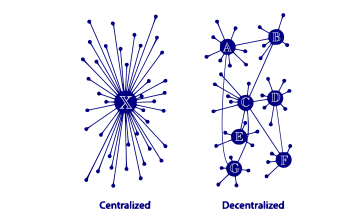The World Wide Web is an important application of the Internet. It has decentralized the distribution of information on a vast scale. The emergence of the web has also opened up new forms of social interaction, activity, and association. The scholarly study of these changes has been called Internet sociology. Eighty-five percent of the world’s population now uses the Internet. The predominant language used on the internet is English, a far cry from the ASCII-based code used in the early days of computer systems.
The internet has made it possible for companies to provide greater flexibility in terms of working hours and location. Employees can work remotely from their homes, while the Internet makes it possible to access cloud storage and computing. The Internet allows for remote collaboration, reducing the complexity of a task, and improving customer service. Today’s technology has allowed us to connect to the web from a wide variety of devices, including our phones and computers. Internet-connected mobile devices have become popular, but they have limited screens and are subject to service provider restrictions. Mobile data charges can be higher than other methods of internet access.
E-mail has become one of the most common applications of the Internet, even though the underlying technologies haven’t changed that much since the early 1980s. E-mail is now widely available and supported by a wide range of ISPs, and the availability of highly portable devices has fueled rapid growth. However, e-mail isn’t without its drawbacks. There are many reasons that people choose to use the Internet, but the most prominent is its efficiency in facilitating daily life.
The Internet is a global network of computer networks that uses the Internet protocol suite to connect devices and networks. The Internet is comprised of public and private networks, as well as business, academic, and government networks. It is connected by numerous networks, including fiber-optic, guided wireless, and other technologies. This allows it to carry an enormous number of information resources and services from one part of the world to another. It also allows us to share information with others and conduct business in a new way.
While the Internet has enabled communication and community-building, it also brings a number of dangers. Online games and social networking sites are a prime example. Using an internet connection allows you to connect with other people in the world, allowing you to avoid unwanted interactions while maximizing your productivity. For example, you can chat with friends from the safety of your own home. There are also many websites that offer free and paid services for downloading music, movies, and other works.
The Internet has transformed almost every form of communication. Thousands of companies use the internet to communicate with their field sales forces. It has helped companies reduce their overhead by enabling telecommuting personnel and centralizing information. Publishers use the internet to distribute photos, advertisements, and editorial copy. All of these media have a greater reach than ever before. This means that people are more likely to buy products and services that they can find online. This has changed the world and changed the way we do business.




